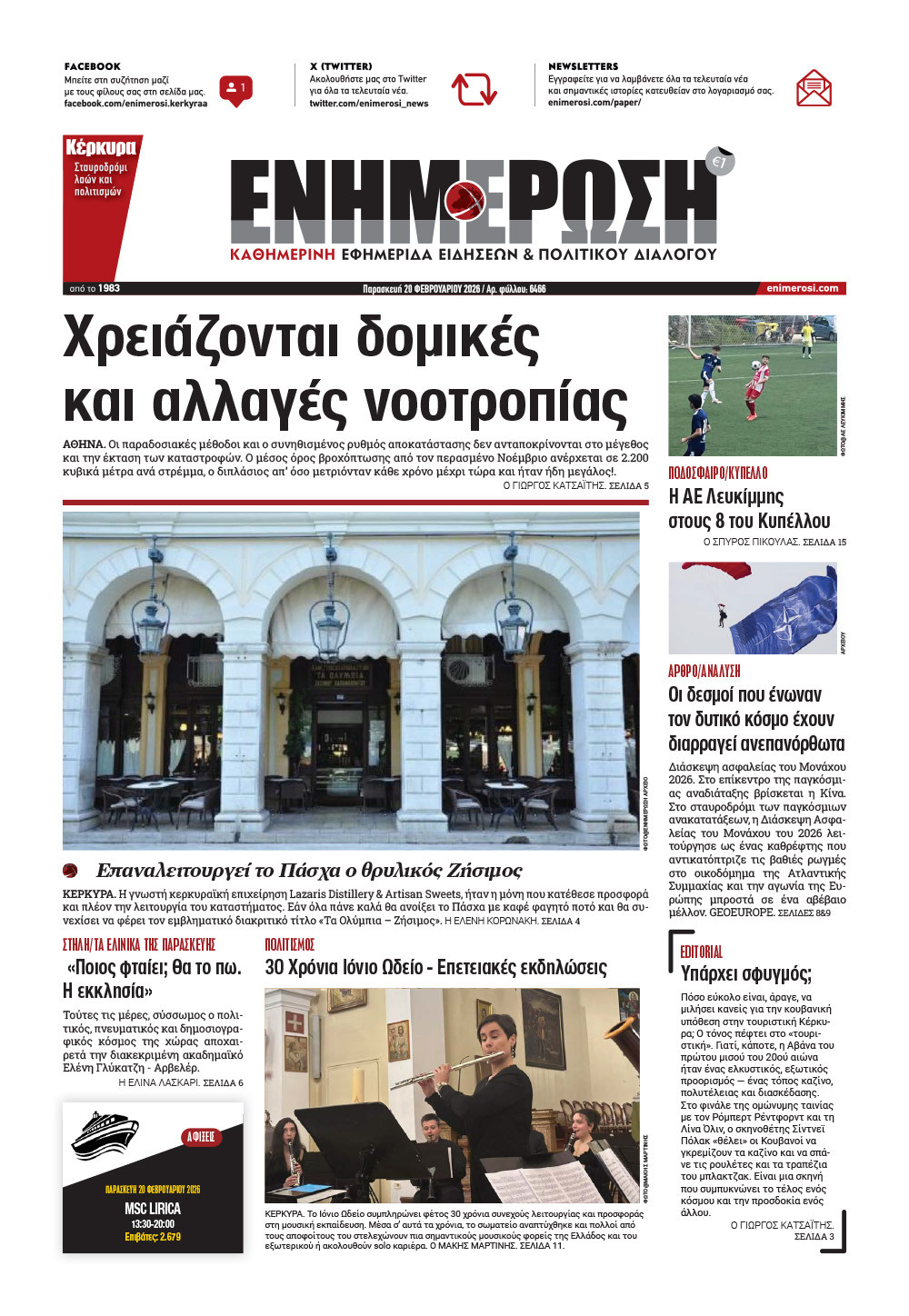All Corfu Prefecture Mayors say ΄No΄ to draft law on Municipal Water and Sewerage Companies (DEYAs)
1733483199.jpg?crop=800,480)
CORFU. "In the event that there is no change to the proposed bill and it is not possible to establish independent Municipal Water and Sewerage Companies (DEYAs) or water supply services for each municipality, following decisions by our municipal councils, as is currently the case, we will proceed with strong protests."
(Central Corfu Municipality) With a categorical "no" to the plans for the reintegration of the Municipal Water and Sewerage Companies (DEYAs), the four Mayors of the Prefecture are uniting their voices in opposition to the draft law of the Ministry of Environment and Energy.
The joint statement issued by the Mayor of Central Corfu, Stefanos Poulimenos; the Mayor of North Corfu, Giorgos Mahimaris; the Mayor of South Corfu, Vassilis Himariotis and the Mayor of Paxos, Spyros Vlachopoulos, is as follows:
As is well known, a state of emergency has been officially declared in the municipalities of Corfu due to the acute water shortage problem we face. Many of our boreholes have dried up, posing a direct threat of severe social and economic repercussions, without any alternative solution for the water supply of our island.
The alternative solution that has been under study and frequently announced over the past three decades by the relevant Ministry as a national-scale project with centralised management is the construction of dams and accompanying infrastructure (new networks, water treatment plants, reservoirs, water softening plants, etc.). However, absolutely NOTHING has been implemented.
At the same time, the model of a single DEYA serving three municipalities in Corfu has been experienced with disheartening results.
The main characteristics of this model include:
- The complete financial collapse of the entity, as control over water provision was lost, making it exceedingly difficult to issue and collect consumption bills.
- Extremely problematic service provision to consumers due to the extensive area and the objective inability to intervene in many of our municipal units.
- The continuous shrinking of the workforce and aging of the staff, particularly in the technical department of the Inter-Municipal DEYA, as regular recruitment has been suspended.
- The inability of the organisation to meet the demands of renewing outdated and perforated networks, which result in significant water loss, amidst financial constraints.
Given these conditions, the effort to address the island's water supply problem is monumental, and the situation is taking a dramatic turn with the upcoming tourist season. Corfu, in addition to its 100,000 permanent residents, must also meet the water needs of four million visitors. This must be done not through a unified water supply system with centralised and controlled facilities, but with dozens of independent aqueducts, most of which date back to the era of communities and the "Capodistrian" municipalities.
These independent aqueducts operate with over 200 boreholes and corresponding pumping stations, alongside numerous reservoirs, which are absolutely necessary due to the terrain's morphology and the wide dispersion of settlements and tourist facilities.
Under these circumstances, the changes brought by the draft law with the mandatory mergers of the DEYAs lead, with mathematical precision, to the complete collapse of the already problematic water supply system in Corfu.
This is why all the municipalities completely disagree with the option of unification. Such an option would only be acceptable if we had a unified water supply system on the island, like the one designed centrally in the 1990s, for which over 5 million euros have been spent on studies and approximately 10 million euros on expropriations.
If there is no change to the proposed bill and it does not allow for the establishment of independent DEYAs or water supply services for each municipality, following the decisions of our municipal councils as is currently the case, we will proceed with dynamic mobilisations in collaboration with the institutional bodies of our islands. We will not take responsibility for the preordained total collapse and disaster that will result in the absolute inability to provide basic services.
Let those who conceived the abolition of local self-governance and the complete dissolution of the DEYAs implement their new plans and, naturally, bear the consequences of the reactions from our fellow citizens and the millions of visitors who flock to our islands.











